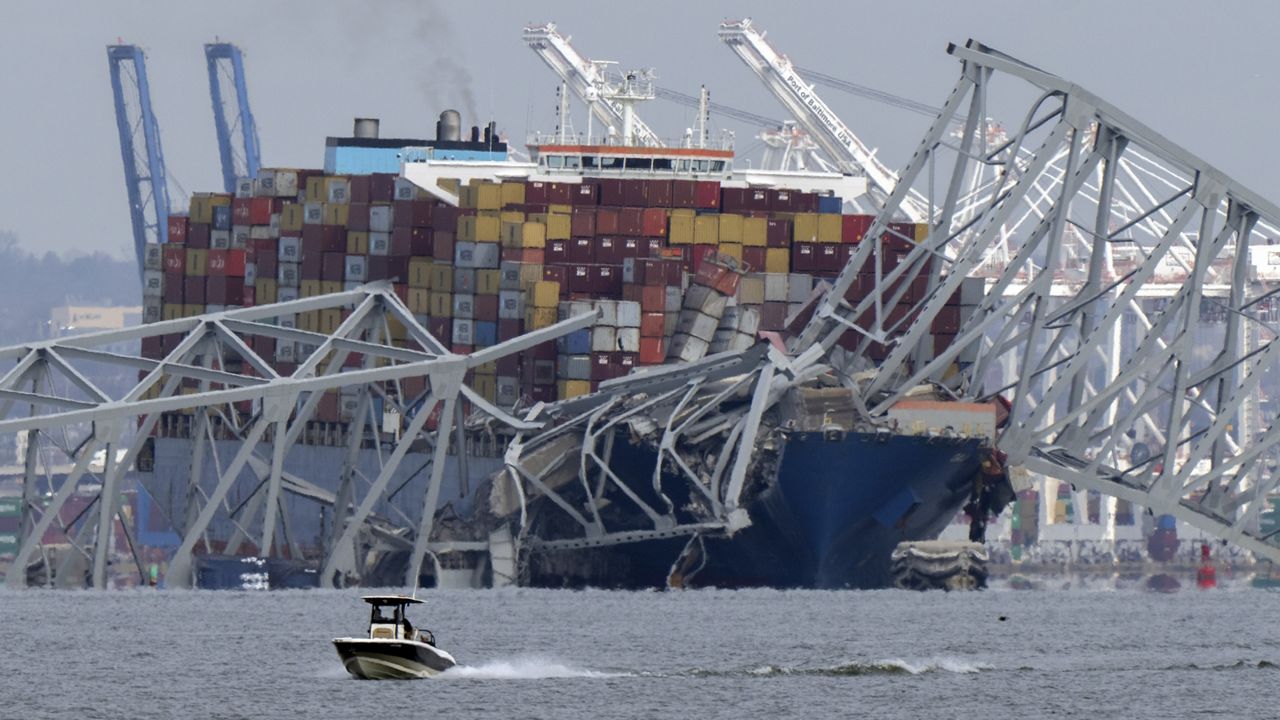The Biden administration renewed its call Friday for Congress to provide supplemental funding for urgent domestic needs and added to its wishlist.
What You Need To Know
- The Biden administration renewed its call Friday for Congress to provide supplemental funding for urgent domestic needs and added to its wishlist
- The revised request includes nearly $4 billion in new funding being sought compared to the October proposal
- The Biden administration wants additional funding to address disaster relief, including the collapse of the Francis Scott Key Bridge in Baltimore, last year’s wildfires in Maui and tornadoes that devastated communities in the Midwest
- In a letter to House Speaker Mike Johnson, R-La., Shalanda Young, director of the Office of Management and Budget, wrote that the administration also “reiterates its call on the Congress to support the toughest, fairest bipartisan border security agreement in decades
The requests initially appeared in a $106 billion spending package proposed by Biden in October. That plan also included foreign aid to help Ukraine and Israel in their wars and Taiwan and partners in the Indo-Pacific to counter China.
Congress approved $95.3 billion in February for those initiatives but has not acted on the other requests, including money to bolster border security.
The revised request includes nearly $4 billion in new funding being sought compared to the October proposal, but also drops a $2.2 billion request related to the nuclear fuel supply chain because Congress has already acted on that.
The Biden administration wants additional funding to address disaster relief, including the collapse of the Francis Scott Key Bridge in Baltimore, last year’s wildfires in Maui and tornadoes that devastated communities in the Midwest.
At the Francis Scott Key Bridge, the Army Corps of Engineers and Coast Guard have paid $112.5 million for wreckage removal, response activities and other unplanned contests, officials said. The Biden administration is seeking to replenish those funds.
In March, a container ship lost power and slammed into the bridge, causing it to crumble into the water below. Six construction workers who were on the crossing were killed, and maritime traffic at the busy Port of Baltimore was disrupted for weeks.
The administration is also seeking $3.1 billion to rebuild the bridge and to repair and reconstruct other federally owned highways and roads across the country that have been severely damaged by natural disasters, such as typhoons, wildfires and hurricanes, or other causes.
The federal government is requesting $25 million for the Labor Department to award grants for reconstruction and recovery needs caused by natural disasters as well as cleanup and recovery efforts at the Francis Scott Key Bridge.
And the Biden administration wants another $700 million for the Department of Housing and Urban Development to spend on long-term recovery, restoration of infrastructure and housing, economic revitalization and mitigation in regions hit by major disasters last year as well as in the future.
“Obviously, these are urgent needs that in many cases, when we look at the October supplemental, we've been requesting now for almost nine months,” a senior administration official told reporters Friday. “So I think our desire is that Congress acts as swiftly as possible, and we are going to work with the Hill.”
In a letter to House Speaker Mike Johnson, R-La., Shalanda Young, director of the Office of Management and Budget, wrote that the administration also “reiterates its call on the Congress to support the toughest, fairest bipartisan border security agreement in decades, which would deliver significant policy changes, resources, and personnel needed to secure America’s border and fix the broken immigration system.”
In February, Republicans in both the House and Senate rejected a border deal that was negotiated for months by Sen. James Lankford, R-Okla.; Sen. Chris Murphy, D-Conn.; and Sen. Kyrsten Sinema, I-Ariz.
The White House is also restating its request for other disaster-relief funding as well money to stabilize child care centers, to pay wildland firefighters and to restore a program making high-speed internet access accessible and affordable to all Americans.



